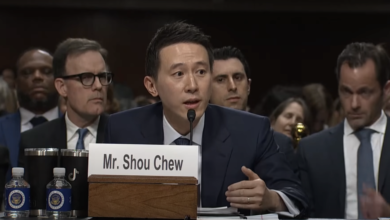Sgt. Derrick Kirkland lost his life to suicide on March 19, 2010
after criminally neglegent mental health care from the Army. Fellow
soldiers and family members have launched a campaign to hold those
responsible accountable.
The following is an interview by March Forward! with
Derrick Kirkland’s younger brother, Jeremiah, who was also in the U.S.
Army and is a member of March Forward!.
Jeremiah Kirkland was an infantryman in the 1st Battalion, 327th Infantry Regiment of the 101st Airborne Division.
Click here to sign the petition demanding justice for Sgt. Kirkland!
March Forward!: What led you to join the Army in the first place?
Jeremiah
Kirkland: I was 16 years old and my girlfriend, who is now my wife,
just got pregnant. I moved in with my brother, got my GED, and once I
got that joined the Army. Basically there’s no way you can make it with a
kid at 17 with a GED-level education.
What did you notice about Derrick after he got home from his first deployment?
Well,
the first big noticeable thing was, me and my brother growing up were
always joking around and everything. He got back and was quiet and
reserved. He had a penchant for—not bragging—but explaining his
experiences a little bit, showing us pictures of random dead people. I
talked to him about it and said he just couldn’t get rid of the
pictures. I don’t know, it was just with him, you could tell. Before
that he was really close with his wife, even during his deployment, but
when I lived with him subsequently I had never seen them happy around
each other. He started drinking a whole bunch. Growing up I’ve seen him
through hard points in life and he’s always bounced back from them, but
after this he never bounced back.
Do you know what it was that affected him?
He
was just a good person, full of compassion; and he didn’t know how to
deal with killing people. Some of the pictures he showed me, there was
one guy all shot up, at least seven times, one through the face. He’s
going through all these pictures and saying “this is what I did.”
Did he express to you that he wasn’t okay?
Oh
yeah. The one big one was, apparently a guy got shot up and his squad
leader told him to stand on the dude’s chest until he bled out. That
really was the big one for him. It was the one he talked about the most.
At the same time he wanted to distance himself from it emotionally,
didn’t want to react to it. The only time he would open up is when he
was drunk. He just broke down, didn’t know how to deal with it. He just…
didn’t deal with it. He didn’t know where to even begin to wrap his
head around that kind of sh*t.
Was he trying to get help at this point?
At first, no. He said ‘yeah I have these issues, but there’s still that stigma about seeking help for PTSD in the army.’
How did he feel when he got his orders to deploy again?
[Laughing] You could say he was less than enthusiastic. He left a piece of himthere, you know? And I think he really thought that going back he could
just get back in the routine, and could go on being a zombie for the
Army, but he figured out when he was there he was still feeling all the
sh*t.
What was he like when you talked to him after he was sent home?
He was just totally depressed. It all got to him.
Did he express his frustration with the treatment he was getting?
Yeah, he said all they did was load him up with drugs.
What was your reaction when you heard that he had killed himself?
In
all honestly, I was not surprised. I mean, Army mental health care is a
joke. You pretty much go there, don’t even tell them anything, and they
determine whatever category you’re in based on different factors and
that’s the treatment you get. My brother got substandard treatment. The
consistently dropped the ball.
Who do you think is responsible for your brother’s death?
This government! If he hadn’t been deployed, for no goddamn reason but corporate greed, he would still be here.
What do you think about Derrick being rated a “low risk” for suicide by the Army?
Not
surprised, honestly. It’s just, you know, pretty much whatever they can
do to save the government dollar on giving our soldiers actual health
care. It just doesn’t work.
You tried to receive mental health counseling recently. What was your experience?
Well,
I go try to talk to on-call social worker, because they say we can use
them without fear of reprimand. I go there and said I’m just having a
rough day, the day before had been my brother’s birthday. I wasn’t going
because I was threatening to hurt myself or anything, I wanted to go
because I was just feeling some pressure. When I get there, instead of
sitting down and talking to somebody, there was just this revolving door
of characters coming in, asking me three questions and leaving. By the
time I actually talked to a psychiatrist, half the things I said were
just all jumbled up. From there, the psychiatrist said they didn’t think
I was suicidal, but because I fell into a certain category of 18-24
year old male they told me I could either commit myself or be emergency
detained. I thought it was ridiculous and I didn’t want to stay, so the
nurse tackled me and police detained me by force. Even though I’m not
suicidal, I got emergency detained for it they locked me up over night
against my will without any reason. The very first meeting I had with a
psychiatrist she said “I don’t even know why you’re here.”
Did you even get the treatment you went for in the first place?
Not really. People came in and ask me questions, but as far as going to talk to someone and get some stuff out, no.
What did that teach you about VA mental heath care?
Don’t trust the VA health care! It was such a horrible experience that just made things worse, I’ll never go back.
So
your brother was trying to kill himself and got denied care and given a
room in the barracks alone, while you were not suicidal and just wanted
basic counseling and they locked you up?
If anybody
would have listened to my brother—within two weeks he tried to kill
himself three times—it should have been painfully obvious that he
should’ve been under observation. I’m normal, all the people there said
they didn’t think I was in danger—but it all boils down to them just
dishing out faceless care. We got opposite treatment because the doctors
don’t even pay attention. Health care takes face time, you can’t just
show up somewhere and treat people by checking boxes.
How do you think we can we change it?
We
just need enough people. We all got to get our stories out there. As
veterans we have to, as a whole, demand better treatment. We all have to
band together. If we don’t want to fight these wars, we got to go on a
general strike, and refuse. There’s nothing we can do but drastic stuff
to change it. You know, that’s just the way it works. Sh*t isn’t going
to change until we all put in what we have to into the pot.
Click here to sign the petition demanding justice for Sgt. Kirkland!






